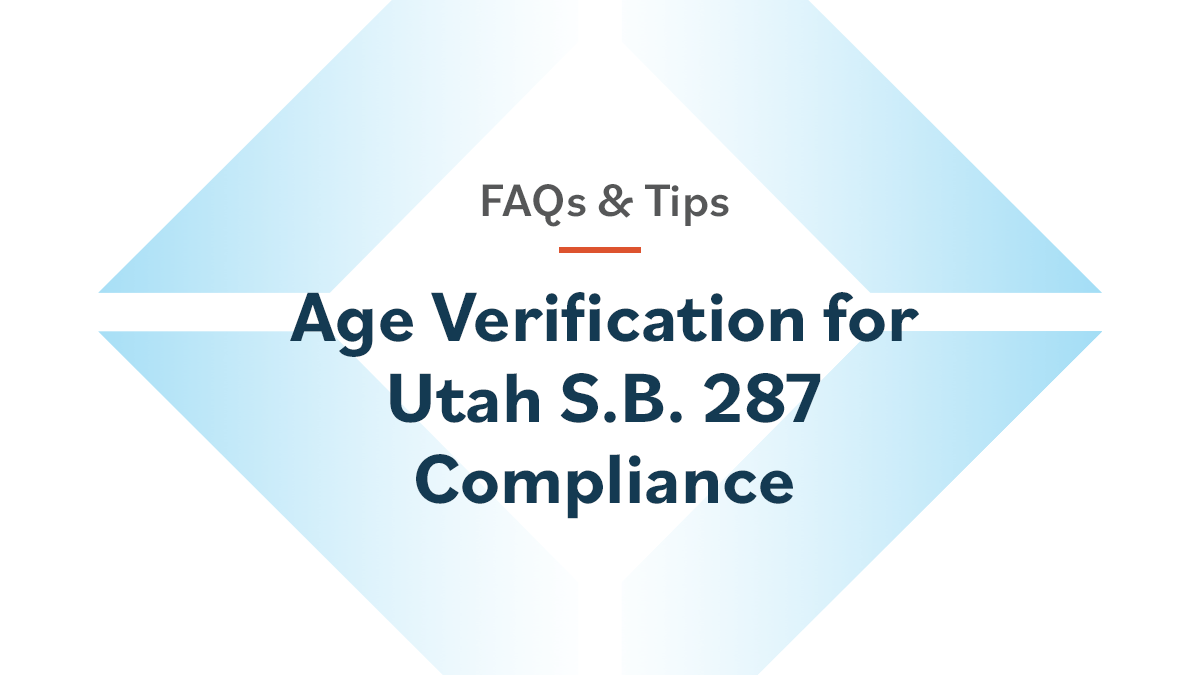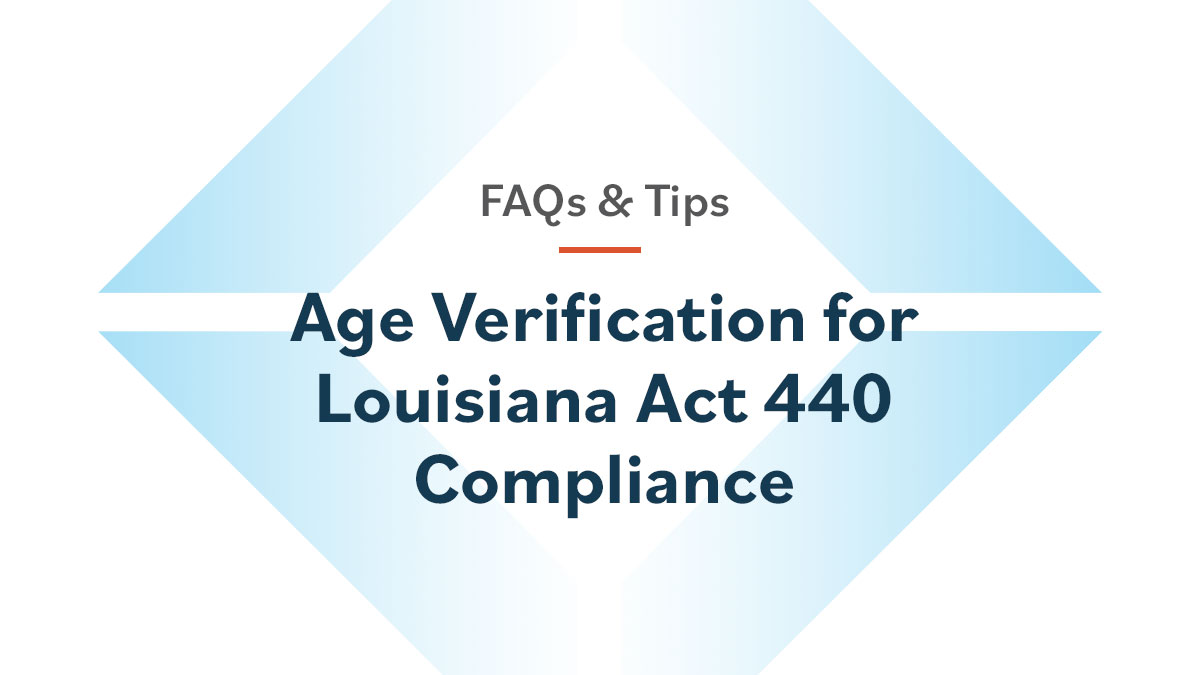
May 5, 2023 | Veratad Blog | Category: Age Verification
Utah S.B. 287 Age Verification: FAQs & Staying Compliant
Utah’s new S.B. 287 (also called SB0287, “Online Pornography Viewing Age Requirements”), which “creates obligations and liabilities for a commercial entity that provides pornography or other materials harmful to minors,” went into effect on May 3, 2023. The bill requires websites that contain “a substantial portion” of adult content to “perform reasonable age verification methods to verify the age of an individual attempting to access the material.”
The Utah anti-porn bill shares significant language with Louisiana’s Act 440, which also requires adult websites to verify the age of users before granting access.
S.B. 287 has made waves online since its passage and enactment. Notably, MindGeek has blocked Utahns’ access to its portfolio of adult websites (including PornHub, Brazzers, RedTube, YouPorn and Reality Kings) in response.
Here is a primer to UT S.B. 287. We’ll cover what is included (and not included) in the statute, age verification requirements, and potential solutions to challenges created by SB0287.
Utah S.B. 287 FAQs
Utah S.B. 287 requires that “a commercial entity that provides pornography and other materials defined as being harmful to minors as a substantial portion of the entity’s content to verify the age of individuals accessing the material.” It also establishes data retention rules, and “imposes liability for publishers and distributors of material harmful to minors who fail to comply with verification requirements.”
S.B. 287 holds commercial entities liable “if the entity fails to perform reasonable age verification methods to verify the age of individuals attempting to access [pornographic] material.” The act explicitly prohibits entities from retaining “any identifying information of the individual after access has been granted to the material.”
The act holds commercial entities in violation “liable to an individual for damages resulting from a minor’s accessing the material, including court costs and reasonable attorney fees as ordered by the court.” Similar penalties apply for retaining identifying information, either by the commercial entity itself or a third-party age verification vendor.
Utah S.B. 287 covers corporations, limited liability companies, partnerships, limited partnerships, sole proprietorships and other legally recognized entities that operates a website containing at least one-third “material harmful to minors.” It only covers material served to users and consumers in the state of Utah (e.g., Salt Lake City, West Valley City, West Jordan, Provo).
The bill defines “material harmful to minors” as “any material that the average person, applying contemporary community standards, would find, taking the material as a whole and with respect to minors, is designed to appeal to, or is designed to pander to, the prurient interest.” In particular, S.B. 287 calls out “material that exploits, is devoted to, or principally consists of descriptions of actual, simulated, or animated display or depiction of any of [NSFW acts starting on Line 55], in a manner patently offensive with respect to minors.” The “material taken as a whole” must lack “serious literary, artistic, political, or scientific value for minors.”
S.B. 287 only covers access to material by Utah residents. “Bona fide news or public interest broadcast[s], website video[s], report[s] or event[s]” are exempt, as are online outlets with less than one-third “material harmful to minors.” (It is not specified how this third is counted.) Internet service providers, their affiliates and subsidiaries, search engines and cloud service providers cannot be held liable for “providing access or connection to or from a website or other information or content on the internet or a facility, system or network not under that provider’s control.”
S.B. 287 requires that users attempting to access materials verify they are at least 18 years old by providing a “digitized identification card,” or by “verification through an independent, third-party age verification service.” The system must compare “the personal information entered by the individual who is seeking access to the material that is available from a commercially available database, or aggregate of databases, that is regularly used by government agencies and businesses for the purpose of age and identity verification.””Any commercially reasonable method” utilizing public or private transactional data is also allowable. This is defined as “any sequence of information that documents an exchange, agreement, or transfer between an individual, commercial entity, or third party used for the purpose of satisfying a request or event, such as “records from mortgage, education, and employment entities.”
Veratad’s age verification solutions offer near-plug-and-play S.B. 287 compliance. We support both document- and data-based verification methods, and comply with S.B. 287’s rules around data retention. You can request a demo of Veratad’s age verification platform here.
The full text of Utah SB0287 is available here (PDF).



